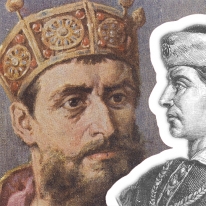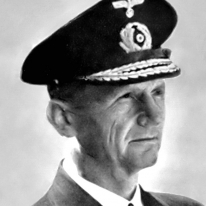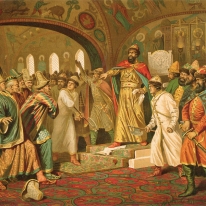The monograph contains reflections divided into seven parts. The first part Towards the Philosophy of Localness is a theoretical interpretation of the idea of localness being developed as a broad and affirmative concept defining the humans’ way according to the teaching of a place. This part stems from the need to trace a creative power in what is only seemingly passive, stiffened, separate. A local man is demonstrated in the power to create bonds with the world and a valid story of a place. The next part Being at Home on the Border: The Silesian History of Place and Things introduces into the understanding of local space as world space because it is a place which is the beginning of determining oneself as an individual and as a part of a community – there is Jedermann in a local man. Silesian Görlitz, together with the experience of wandering and stories of those who lost home, enables reflection on localness in the proximity of home and migration. In the part The Transgression of History and the Desire for Nature: The Value of a Derelict Park I focus on the experience of existence developed by a local man, which is formulated on the very margins of the world. The reflection is focused on a fallen landscape design of the former Fazaniec park in Silesia. The next part The Narrative of the Cultural Border and the Silesian Philosophy of Home is focused on the description of the borders and the problem of the dialectics of oppression and border protection. Where could one search for new ways of narrating the border, ones that would not only constitute a novelty but affect the realm of relations? The reflection leads to the Silesian narrative of home. The part An Insight into a Post- Industrial Place is focused on the post-industrial place which is more than just design. The post-factory teaches us to understand we are attached to the ground and offers us such a journey which is perhaps a passage to the heart of darkness. It also inscribes our existence in the larger event of dwelling. The Philosophy of Localness and the Arts combines thinking about a city with thinking about a metaphysical community, home and localness, which directs to the description of cultural practice in Barcelona, but also to the reflection upon a local metropolis. The last part University and the Idea of Place is an interpretation of the idea of the university at the intersection of the world and home. The main aim of this part is to describe problems of autonomy, location, and connection with regions. The explanation of the idea of wonder leads to the consideration of an important role of university as an independent and autonomous place in our common space.
Elipsa Dom Wydawniczy
Oprawa miękka
Wydanie: pierwsze
ISBN: 978-83-801-7270-8
Wydanie: pierwsze
ISBN: 978-83-801-7270-8
Liczba stron: 208
Cena detaliczna: 29,40 zł
Cena detaliczna: 29,40 zł





